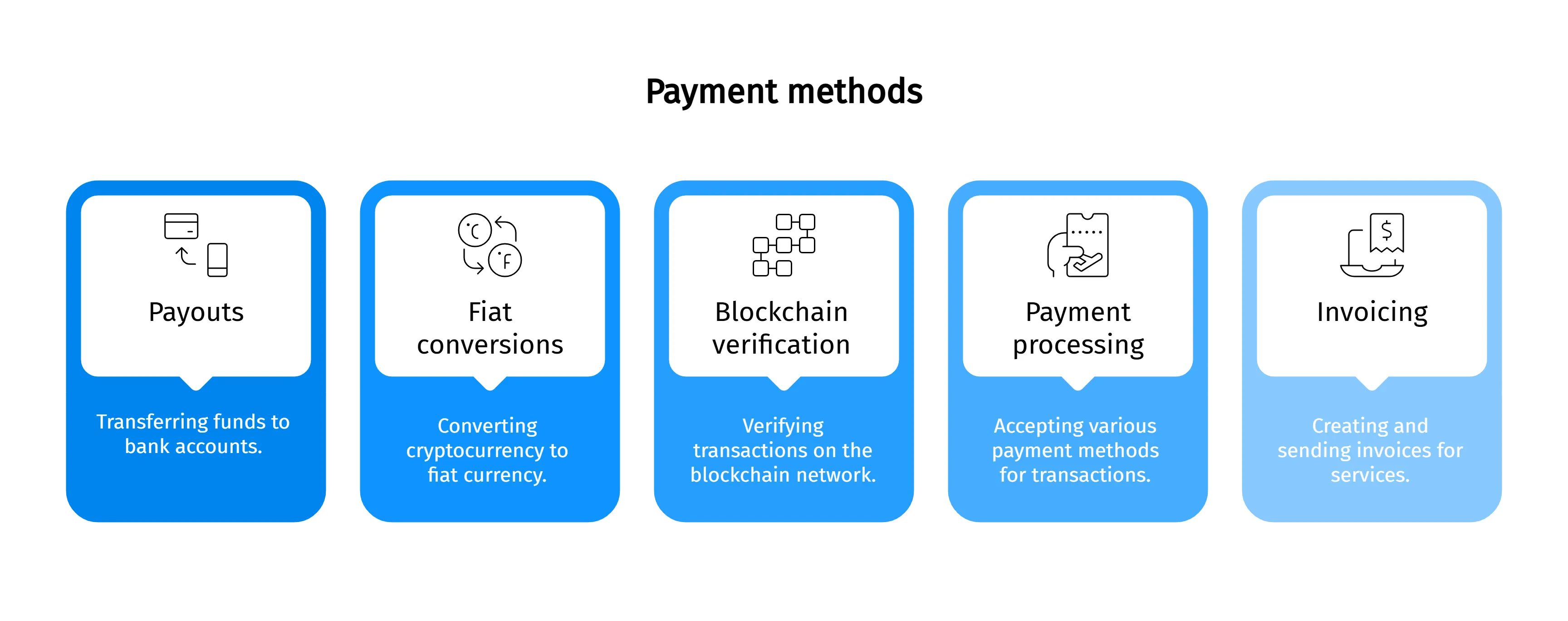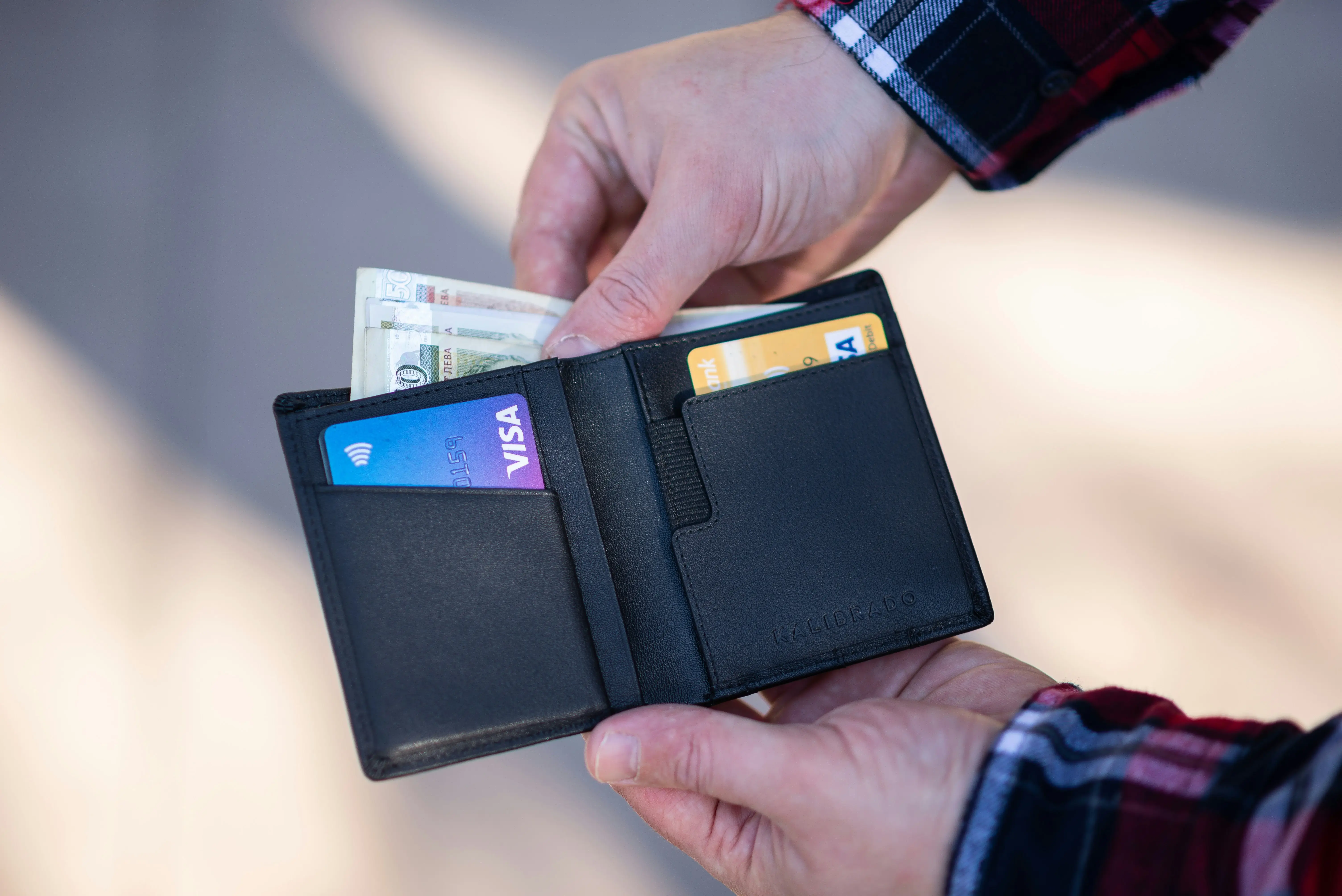The 7 Best Crypto Payment Gateways In The Year 2026


Every week at FirmEU, we speak to businesses that are struggling to accept crypto - despite skyrocketing demand from international customers, high-risk sectors and digitally native buyers.
The solution? Choosing the right crypto payment gateway. And in 2026, that choice has never been more important.
With global crypto transactions set to exceed $1.6 trillion in 2024 (up 37% year-on-year), merchants still relying on outdated checkout systems will be left behind. From chargeback prevention to instant settlement and multi-currency conversion, the right crypto gateway can transform your payment strategy overnight.
In this long-form guide, we’ll help you:
- Understand how crypto payment gateways work in 2026
- Compare the 7 best options across security, features, and ease of use
- Choose the right solution based on your risk profile and customer base
Let’s dive into what crypto-native commerce looks like this upcoming year.
What is a crypto payment gateway?
Simply put, a crypto payment gateway is a service that allows merchants to accept cryptocurrencies such as bitcoin, ethereum and stablecoins directly from customers in exchange for goods and services.
But unlike crypto wallets or exchanges, gateways are built for business. They process:

How it works (behind the scenes)
When a customer chooses to pay with crypto:
- The gateway generates a real-time invoice with a QR code or payment address.
- The customer pays with their digital wallet.
- The transaction is sent to the blockchain and verified.
- The merchant is notified of the successful payment.
- Funds are settled in crypto or converted to fiat immediately or on a scheduled basis.
Pro tip: Always check whether the gateway is custodial (they hold your funds) or non-custodial (you retain full control of the wallet).
What to look for in a crypto payment gateway
Not all crypto gateways are created equal. While some offer basic wallet integration, the best solutions in 2026 will go far beyond that. They will offer:
Multi-currency support
You will need to accept Bitcoin, Ethereum, USDT and at least 5-10 additional coins - including stablecoins and layer 2 assets such as Polygon or Lightning BTC.
Instant fiat conversion
Look for gateways that offer automatic conversion to EUR, USD or GBP at market rates - helping you avoid crypto price volatility.
Seamless integration
The best tools offer:
- RESTful APIs
- E-commerce plugins (Shopify, WooCommerce, Magento)
- White label options
- Hosted checkout pages
Transparent fees
Beware of hidden fees in spread-based conversions. A real 0.5% gateway shouldn't make an extra 2% on exchange rates.
Regulatory compliance
Ensure the provider is compliant with AML/KYC regulations, especially in the EU or US. Some providers offer optional per-transaction KYC to reduce fraud.
Built-in risk tools
High-risk businesses need fraud scoring, blacklist filtering and wallet verification. These features are increasingly offered out-of-the-box.
Bonus criteria: What else matters?
- Custodial vs. non-custodial: Do you want full control of your crypto or a service that converts and settles it for you?
- Settlement frequency: Some gateways settle daily, others offer real-time payouts.
- Support & Uptime: For 24/7 businesses (such as gaming or adult content), 99.99% uptime is non-negotiable.
Best Crypto Payment Gateways Compared (Quick View)
The top 7 crypto payment gateways in 2026
Here's our detailed breakdown of the best crypto gateways for businesses in 2026, based on real-world integration experience, fees, security and merchant flexibility.
1. PayFirmly
As our own payment orchestration solution at FirmEU, PayFirmly was built specifically for high-risk merchants, cross-border commerce, and businesses underserved by traditional banks.
Unlike most crypto gateways that simply process payments, PayFirmly acts as an intelligent payment orchestration platform, automatically selecting the best method across over 500 channels—including crypto, SEPA, cards, and local APMs.
Pros:
- Accept Bitcoin, Ethereum, USDT, BNB, MATIC, and 50+ other coins
- Instant fiat conversion to EUR, USD, or GBP
- Seamless API integration and white-label checkout pages
- PCI DSS Level 1 compliance
- Supports high-risk verticals (gaming, forex, adult, CBD)
Cons:
- Tax reporting tools still limited
Pricing:
0.5%–1.0% depending on volume
No monthly fee. No setup fee.
Best for:
Businesses needing full-stack payments with both fiat and crypto rails.
Integration options:
- REST API
- Hosted checkout pages
- Shopify & WooCommerce plugins
- JavaScript SDK
2. BitPay
A pioneer in the crypto payment space, BitPay launched back in 2011 and remains one of the most stable, enterprise-focused providers on the market.
Pros:
- Trusted by Microsoft, Newegg, and Twitch
- Excellent documentation for developers
- Accepts 15+ coins including Bitcoin, Ethereum, Dogecoin
- Full AML and PCI compliance
Cons:
- 1% flat fee (higher than most modern competitors)
- Limited customization for branding and UX
- Fiat payouts only in select countries
Pricing:
1% flat fee on all crypto transactions
No additional spread fee on conversions
Best for:
Large brands that prioritize compliance and stability
Integration options:
- Hosted pages
- POS tools
- Plugins for Magento, WooCommerce, and Shopify
- Custom API
One global e-commerce brand saved $42,000 annually by switching to crypto with BitPay due to chargeback elimination.
3. Coinbase Commerce
Backed by the largest publicly traded crypto exchange in the US, Coinbase Commerce offers simplicity, reputation, and powerful integrations.
Pros:
- Trusted Coinbase ecosystem
- Non-custodial wallet system
- Accepts BTC, ETH, LTC, DAI, USDC
- Easy Shopify and WooCommerce setup
- 0% fee if settling in crypto
Cons:
- 1% fee + spread if converting to fiat
- Limited branding customization
- No built-in invoice management
Pricing:
0% for crypto-to-crypto
1% + spread for fiat settlement
Best for:
US-based brands, Shopify merchants, and beginners
4. NOWPayments
Launched by the team behind ChangeNOW, NOWPayments stands out for its simplicity and sheer crypto variety—with support for over 150+ cryptocurrencies, including stablecoins and niche tokens.
Pros:
- Lowest fee range on the market (as low as 0.25%)
- Instant auto-conversion to fiat or stablecoins
- Excellent support for donations and NGOs
- API, buttons, plugins, and POS tools available
- No custody—payments go directly to your wallet
Cons:
- No fiat settlement to bank accounts (crypto-to-crypto or stablecoins only)
- Newer brand with smaller enterprise footprint
- Limited multi-user access or advanced reporting tools
Pricing:
0.5% base, with discounts to 0.25% for high volume
No setup or monthly fees
Best for:
Non-profits, creators, crypto-native merchants, Twitch streamers, and DAOs
A crypto charity campaign raised over $1M in donations via NOWPayments, reducing transaction fees by 88% vs. PayPal.
5. CoinGate
CoinGate is one of the most established European players in the crypto payments space. Based in Lithuania and fully EU-licensed, it's ideal for merchants who want both compliance and convenience.
Pros:
- Regulated as an Electronic Money Institution (EMI)
- Accept 70+ cryptocurrencies
- Fiat settlement in EUR, USD, GBP
- Plugin for WooCommerce, PrestaShop, Magento
- POS-ready for brick-and-mortar retail
Cons:
- Slightly dated dashboard UI
- SEPA-only fiat payouts
- No support for custom checkout branding
Pricing:
1% flat, reduced to 0.8% for volumes over €100,000/month
Best for:
European businesses needing easy integration + legal clarity
Integration options:
- Hosted checkout
- E-commerce plugins
- POS terminals
- Public invoice links
6. Cryptomus
A fast-growing provider built with customization and risk-tolerance in mind, Cryptomus has earned its place among crypto-first platforms, especially for merchants in high-risk verticals.
Pros:
- High-risk friendly: accepts gaming, CBD, adult
- Dynamic checkout widget (theme, currency, language)
- Advanced payment routing logic
- Accepts 20+ cryptos + stablecoins
- Real-time transaction analytics
Cons:
- Less intuitive dashboard for new users
- Fiat conversion not available in all countries
- No official mobile app (yet)
Pricing:
0.6% standard, down to 0.3% for large volumes
Best for:
Crypto-native stores, adult content, gaming, forex, and custom checkout builders
Merchants can offer "split payments" so that a portion of the payment goes to multiple wallets - ideal for affiliate projects or affiliate setups.
7. CoinsBank
Founded in 2016 and based in the UK, CoinsBank is a full-service crypto financial platform offering not just payment processing, but cards, exchanges, and direct SWIFT/SEPA settlement.
Pros:
- Strong fiat integration: USD, EUR, JPY
- Multi-user merchant accounts with permission settings
- SEPA & SWIFT transfers to corporate accounts
- White-label options available
- Built-in exchange and wallet tools
Cons:
- High starting fees for low-volume merchants
- Lengthy KYC process
- Fewer dev-focused features
Pricing:
Starts at 1.5%, drops to 0.5% for volumes > $500K/month
Best for:
Established businesses needing traditional + crypto settlement with regulatory support
Why choosing the right crypto payment gateway matters
Choosing the right crypto payment gateway in 2026 is not just a technical decision - it's a strategic one that impacts profitability, compliance and customer satisfaction.
Lower transaction fees
Most crypto gateways charge between 0.5-1% per transaction, significantly lower than traditional credit card processors, which can charge 2.5-4% plus fixed fees. This adds up to significant savings over time, especially for businesses with high transaction volumes or tight margins.
Global reach and borderless transactions
Crypto removes the friction associated with cross-border payments. You no longer need to worry about multi-currency accounts or country-specific banking infrastructure. With the right gateway, you can receive payments from anywhere in the world in minutes. Learn more about regional capabilities in our guide to SEPA zone countries and requirements.
Reduced risk of chargebacks
Unlike credit card payments, crypto transactions are irreversible once confirmed. This eliminates one of the most frustrating and costly problems for merchants - fraudulent chargebacks.
Faster processing
Depending on the network and gateway used, crypto payments can be settled in real-time or within hours. Compared to traditional bank transfers, which can take 2-5 business days, this significantly improves cash flow and operational efficiency.
Optimised checkout experience
Modern gateways enable dynamic checkout, multi-currency billing and intelligent routing - all of which contribute to a better user experience, reduced shopping cart abandonment and increased average order value.
A gateway is more than a payment tool
In 2026, crypto payment gateways are no longer niche tools for tech-savvy startups - they are enterprise-ready, globally integrated systems that help businesses reduce costs, increase access and future-proof their checkout experience.
Whether you're a merchant seeking new ways to serve international customers or a finance team looking to reduce processing costs, the crypto gateway you choose will have a direct impact on your ability to compete in the digital economy.
Choosing the right partner requires an assessment of your risk profile, payment preferences, technical infrastructure and customer base. With proper implementation, crypto payments can be a meaningful part of your revenue strategy.
Need help getting started? Contact FirmEU to explore the best crypto payment setup for your use case.
FAQs
No. FirmEU is not a bank or financial institution. We operate as an independent matchmaking platform, connecting businesses with verified financial partners. All onboarding, KYC, and approval decisions are handled directly by the financial institution.
Still Have Questions?




Find the Right Banking and Payment Processing Partner for Your Business
Tell us about your company, and we’ll match you with the most suitable global banking or payment providers from our verified network.





%20(1).webp)
